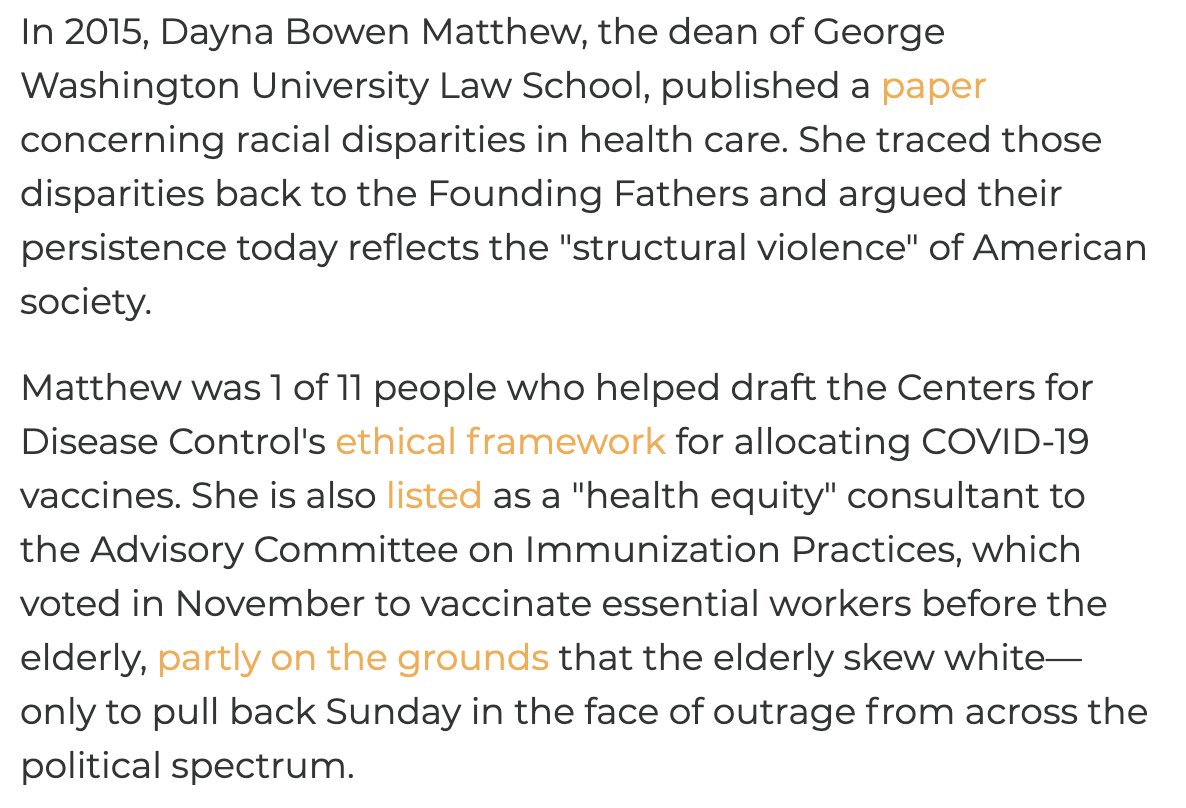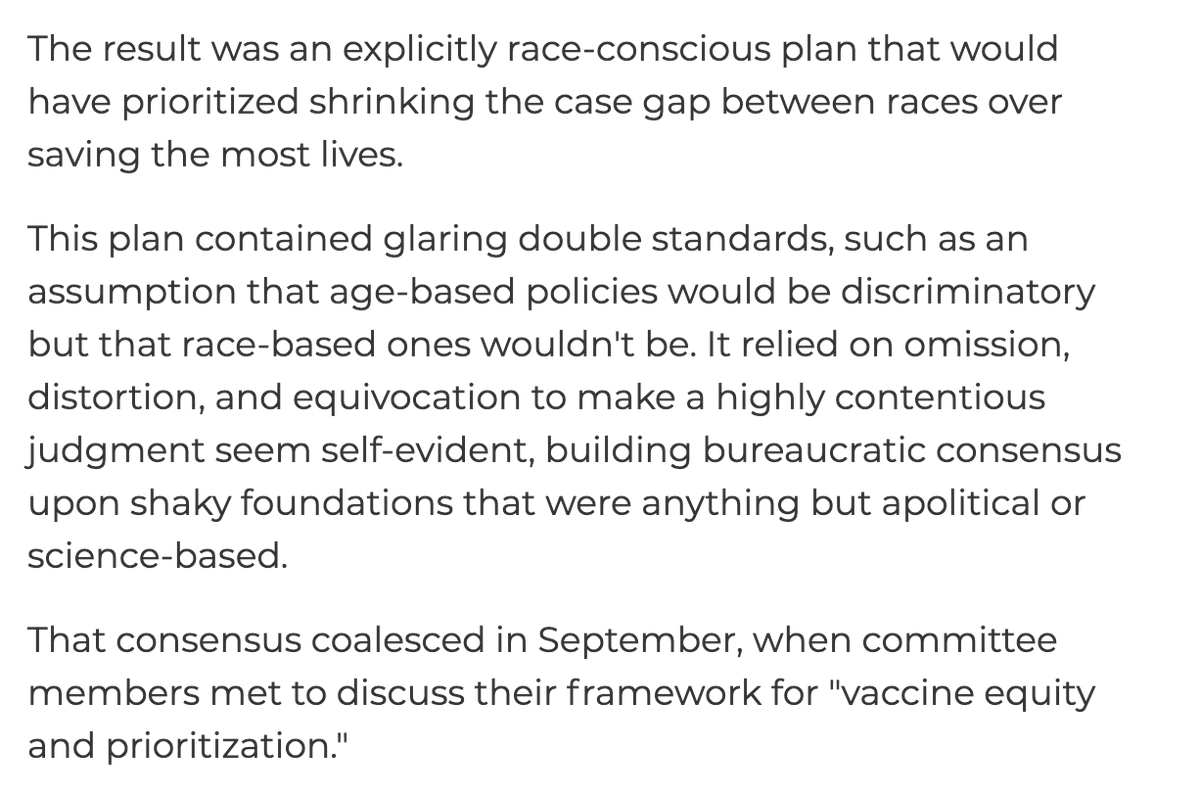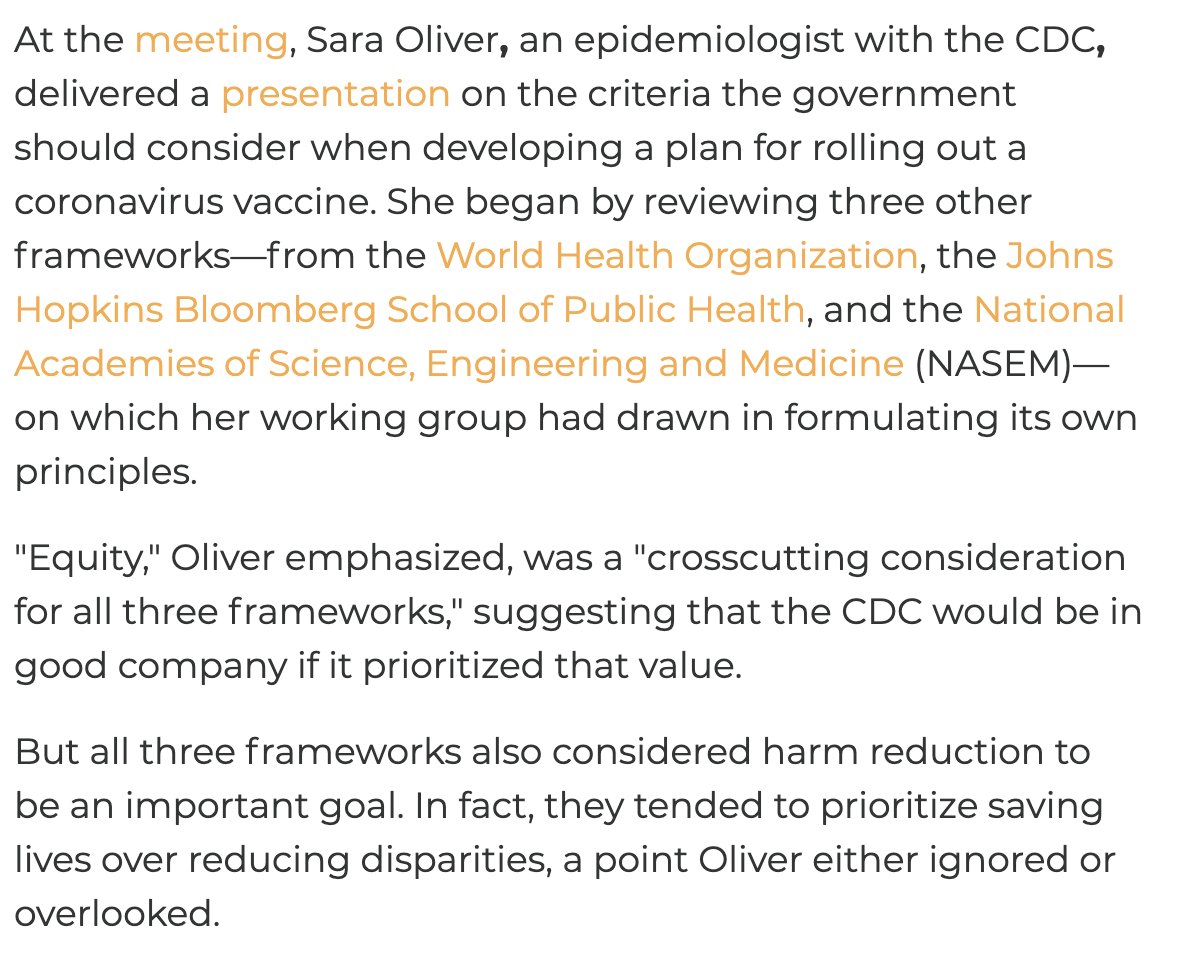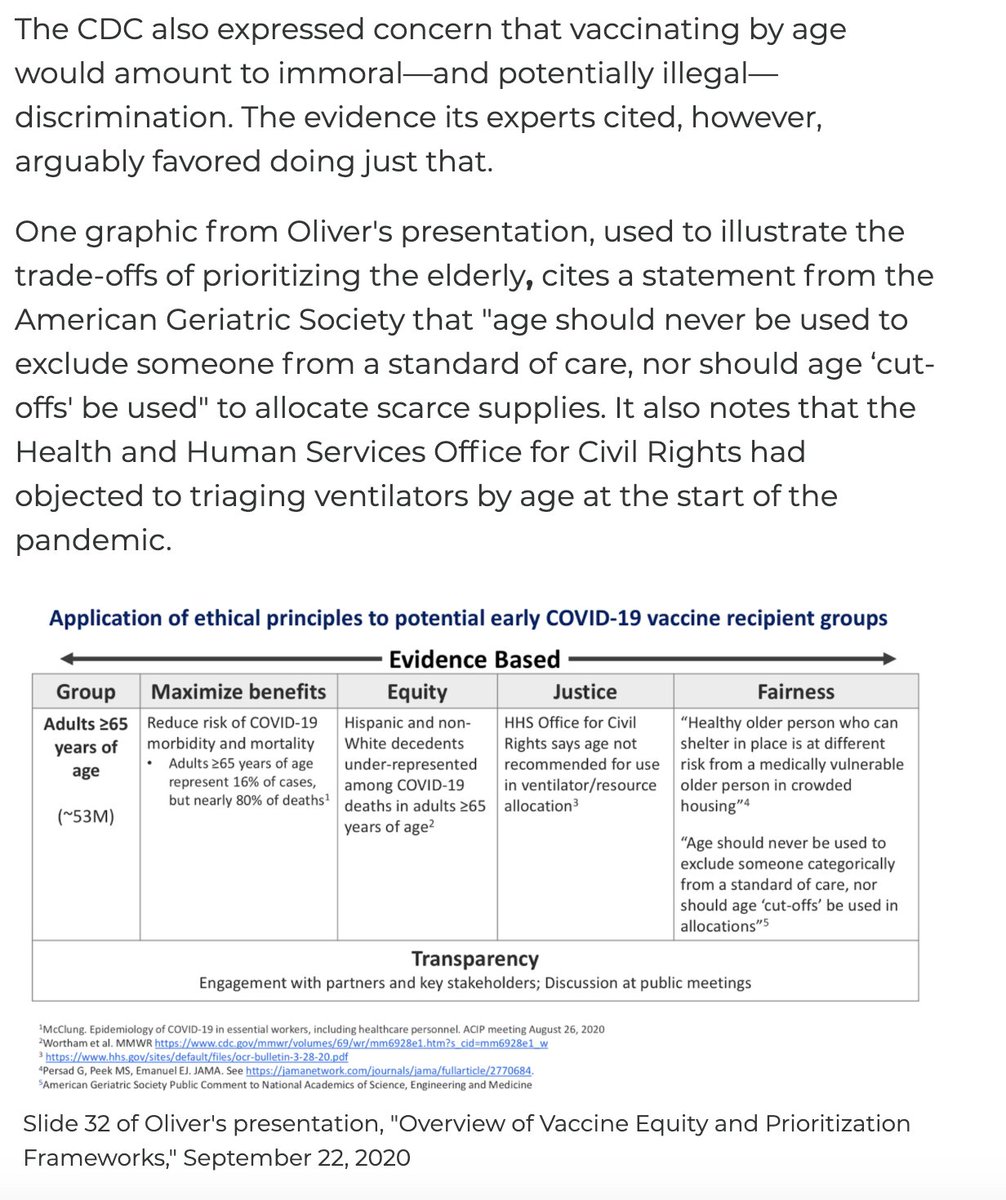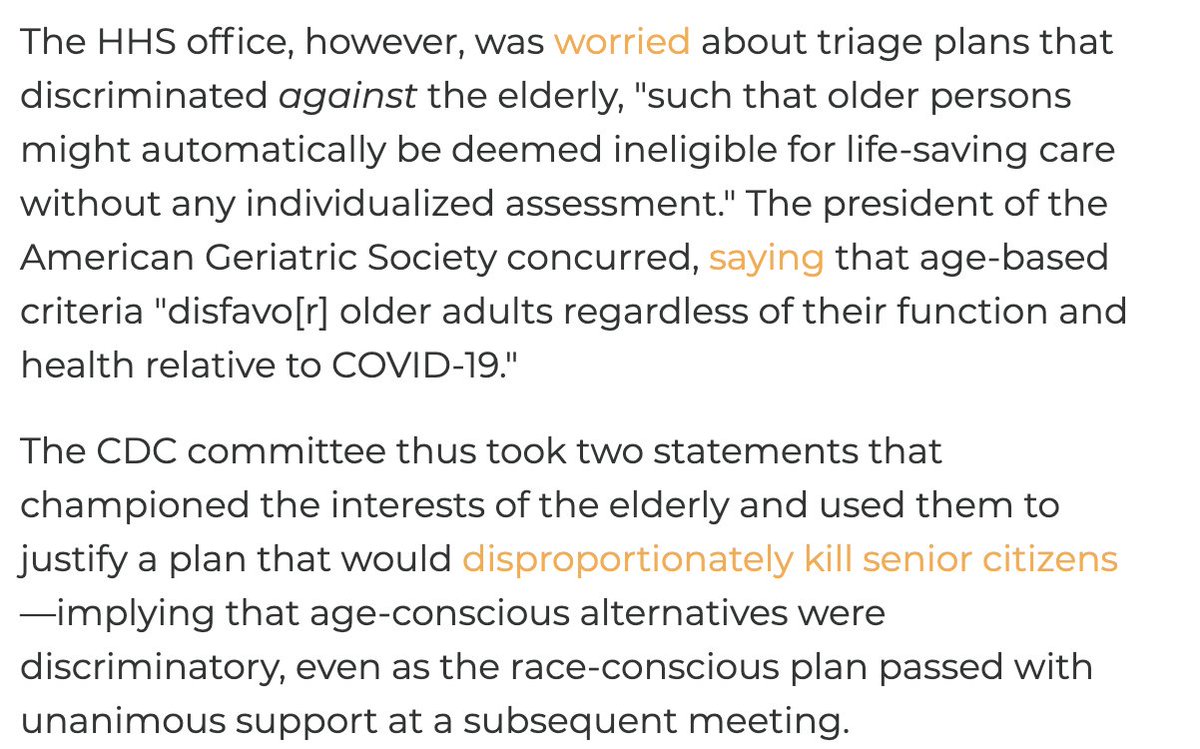I did a deep dive into the ethical framework the CDC used to justify vaccinating essential workers before the elderly, even though the CDC's own models showed that this would result in preventable deaths.
The framework was not very ethical. https://freebeacon.com/coronavirus/how-the-centers-for-disease-control-went-woke/
The framework was not very ethical. https://freebeacon.com/coronavirus/how-the-centers-for-disease-control-went-woke/
First, though, let's look at who actually wrote the framework. One author—listed as an "equity consultant" to the CDC—published a paper in 2015 that traced modern healthcare disparities back to the Founding Fathers, and lambasted the "structural violence" of American society.
She also told the New York Times that racial inequality "requires us to prioritize by race." The chair of the CDC committee in charge of vaccine priorities, Jose Romero, agreed with her. And their worldview is hardly an outlier at the CDC, as its diversity trainings suggest.
So how did that worldview manifest? In a series of distortions and double standards that made a highly contentious value judgment seem rational, apolitical, and self-evident—even though it was anything but. That judgment first took shape at a committee meeting in September.
At the meeting, Sara Oliver noted three outside frameworks the committee had drawn on. Equity, she emphasized, "was a crosscutting consideration for all three." But so was harm reduction—and the frameworks tended to prioritize harm reduction OVER equity, which Oliver ignored.
Even the Hopkins framework, which spent multiple paragraphs on the impact of "structural racism," recommended vaccinating the elderly before most essential workers—because that course of action would "avert the greatest overall harm." See for yourself: https://www.centerforhealthsecurity.org/our-work/pubs_archive/pubs-pdfs/2020/200819-vaccine-allocation.pdf
But the CDC's own framework reflects different priorities. Of its five ethical principles, two mention racial health disparities, resulting in a kind of moral double counting. Those principles also seem to be in tension with harm reduction. See the thought experiment below.
I'm a charitable guy, so I asked 13 members of the committee if I was misreading the principles. None of them answered my question, although Kathy Kinlaw, the group's sole "ethics consultant," simply denied that there were any tradeoffs between equity and harm reduction. Uh-huh.
The CDC also expressed concern that prioritizing the elderly would be ageist. To make that case, it cited two statements—one from the American Geriatric Society, the other from HHS's Office for Civil Rights—about the horrors of age cutoffs. But it left out some crucial context...
Both the American Geriatric Society and HHS were worried about triage policies that DENIED the elderly care on the basis of age. So the CDC took two statements championing the interests of the elderly and used them to justify a plan that would disproportionately kill old people.
Also, it's worth highlighting the blatant double standard. Age-conscious policies are ageist, but race-conscious policies are anti-racist, according to Science .
.
Naturally, nobody pointed out the double standard, and the plan was endorsed 14-0 at a subsequent meeting.
 .
. Naturally, nobody pointed out the double standard, and the plan was endorsed 14-0 at a subsequent meeting.
All of this—the exclusions, the contradictions, the moral redundancies—helped disguise the agenda that it justified, giving unscientific value judgments an air of scientific assuredness.
The trick seems to have fooled Marcella Nunez-Smith, a co-chair of Biden's COVID task force, who praised the CDC for "taking political interference out of the process" and for "their grounding in inequity" in the same breath. Like them, she seems not to have realized the irony.

 Read on Twitter
Read on Twitter